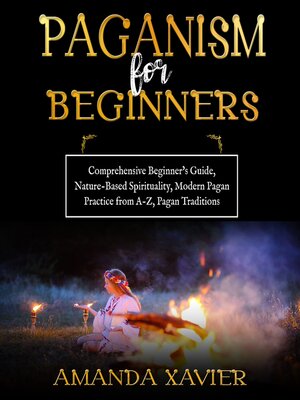PAGANISM FOR BEGINNERS
audiobook (Unabridged) ∣ Comprehensive Beginner's Guide, Nature-Based Spirituality, Modern Pagan Practice from A-Z, Pagan Traditions
By Amanda Xavier

Sign up to save your library
With an OverDrive account, you can save your favorite libraries for at-a-glance information about availability. Find out more about OverDrive accounts.
Find this title in Libby, the library reading app by OverDrive.



Search for a digital library with this title
Title found at these libraries:
| Library Name | Distance |
|---|---|
| Loading... |
If you're looking for a short answer to the question above, I'm afraid that there isn't one. The term "Pagan" is as old as time itself and needless to say, its definition has significantly evolved over the years. For this reason, there is no straightforward way to pack the essence of paganism in a sentence or two - it is an exploration that requires a deep insight into the history of the term, what it signified in the past, and what it means today in the 21st century.
The word "Pagan" originates from the Latin term paganus, which describes a person living in the country. It was used to distinguish between people who lived in the cities and practiced Christianity and people who lived in the rural areas and still believed in the "old," non-Christian ways. Since then, "pagan" typically refers to anyone who does not believe in or practice traditional religions such as Christianity, Islam, or Judaism.







